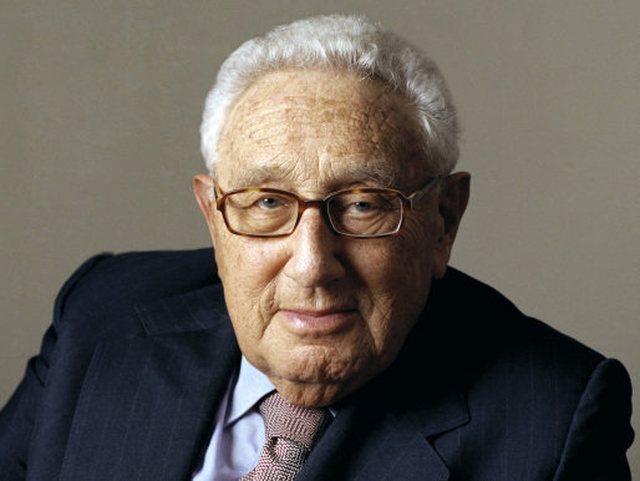
The surreal atmosphere of the Covid-19 pandemic reminds me of how I felt in my youth when I was part of the 84th Infantry Division during the Battle of Bulge. Now, as at the end of 1944, there is a sense of imminent danger, which was aimed not at any particular person but at random and devastating. But there is an important difference between that distant time and our time. American resilience was then strengthened by a final national goal. Now, in a divided country, an efficient and far-sighted government is needed to overcome unparalleled obstacles, in size and global reach. Maintaining public confidence is essential for social solidarity, the relationship of societies with each other, and international peace and stability.
Nations unite and thrive based on the belief that their institutions can predict disaster, stop their impact, and restore stability. When the Covid-19 pandemic ends, the institutions of many countries will be perceived as failed. It does not matter if this judgment is objectively fair. The reality is that the world will never be the same after the coronavirus. Debating now about the past only makes it harder to do the right thing.
The coronavirus has struck with unprecedented force and ferocity. Its spread is exponential: cases in the US are doubling every five days. While writing this article, there is still no cure. Medical equipment is insufficient to cope with the surge of cases. Intensive care units are on the verge of collapse. Testing is insufficient to perform the task of identifying the extent of the infection, much less repelling it. A successful vaccine can take 12-18 months to produce.
The U.S. administration has done a solid job of avoiding immediate disaster. The final test will be whether the spread of the virus can be stopped and further reversed, in a way and to a degree that maintains public confidence in the ability of Americans to self-govern. Crisis efforts, however broad and necessary, should not divert attention from the urgent task of launching a parallel effort, for the transition to the post-coronavirus order.
Leaders are facing this crisis mainly on a national basis, but the impact of the virus on the disintegration of societies knows no bounds. While the attack on human health will be - hopefully - temporary, the political and economic turmoil it has started can last for generations. No country, not even the United States, can overcome this virus-induced situation simply through national efforts. Addressing the needs of the moment must ultimately be accompanied by a global vision and collaborative program. If we cannot do both at the same time, we will face the worst of each.
Learning from the development of the Marshall Plan and the Manhattan Project, the U.S. is forced to make a major effort in three areas. First, strengthen global resistance to infectious diseases. The triumphs of medical science, such as the polio vaccine and the extinction of chicken pox, or the statistical-technical miracle of medical diagnosis through artificial intelligence, have put us to sleep in a dangerous state of self-satisfaction. We need to develop new techniques and technologies to control infections and vaccines in large populations. Cities, states, and regions must be constantly prepared to protect people from pandemics through the creation of stocks, collaborative planning, and exploration at the frontiers of science.
Second, to try to heal the wounds of the world economy. Global leaders have learned important lessons from the 2008 financial crisis. The current economic crisis is more complex: The coronavirus-induced shrinkage is, at its own pace and on a global scale, unlike anything ever known in history. And the necessary measures for public health, such as social distancing and the closure of schools and businesses, are contributing to the increase in economic pain. The programs should also seek to mitigate the effects of the coming chaos on the world's most vulnerable populations.
Third, to defend the principles of the global liberal order. The legend at the heart of modern governance is a city with walls protected by powerful rulers, sometimes despotic, sometimes benevolent, but always strong enough to protect people from an external enemy. Enlightenment thinkers reconsider this concept, arguing that the purpose of the legitimate state is to provide for the basic needs of the people: security, order, economic well-being, and justice. Individuals cannot provide for themselves. The pandemic has prompted an anachronism, a resurgence of the city with walls, in an era when prosperity depends on global trade and the movement of people.
The democracies of the world must defend and preserve the values of the Enlightenment. A global withdrawal from balancing power with legitimacy would cause the social contract to disintegrate within states and internationally. However, this millennial issue of legitimacy and power cannot be solved at the same time as trying to overcome the open wound of Covid-19. Content is needed from all sides, both in domestic politics and in international diplomacy. The advantages should be clearly defined.
We passed from the Battle of Bulges to a world with increased prosperity, and with the dignity of the strengthened man. Now, we live in an epoch. The historic challenge for leaders is to manage the crisis while building the future. Failure could set the world on fire.
Henry Kissinger has been Secretary of State and National Security Adviser in the administration of Presidents Nixon and Ford / WSJ - Bota.al





